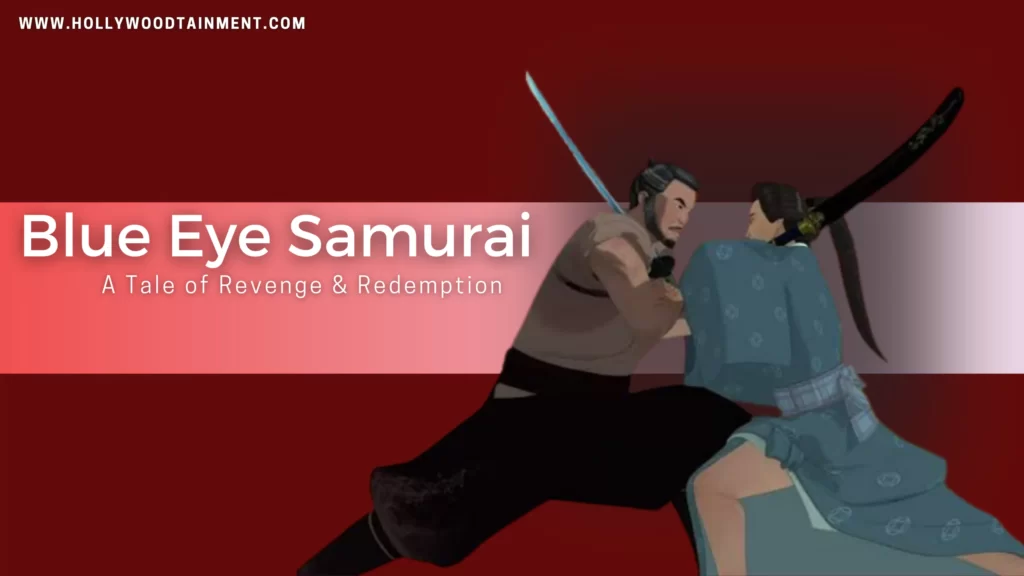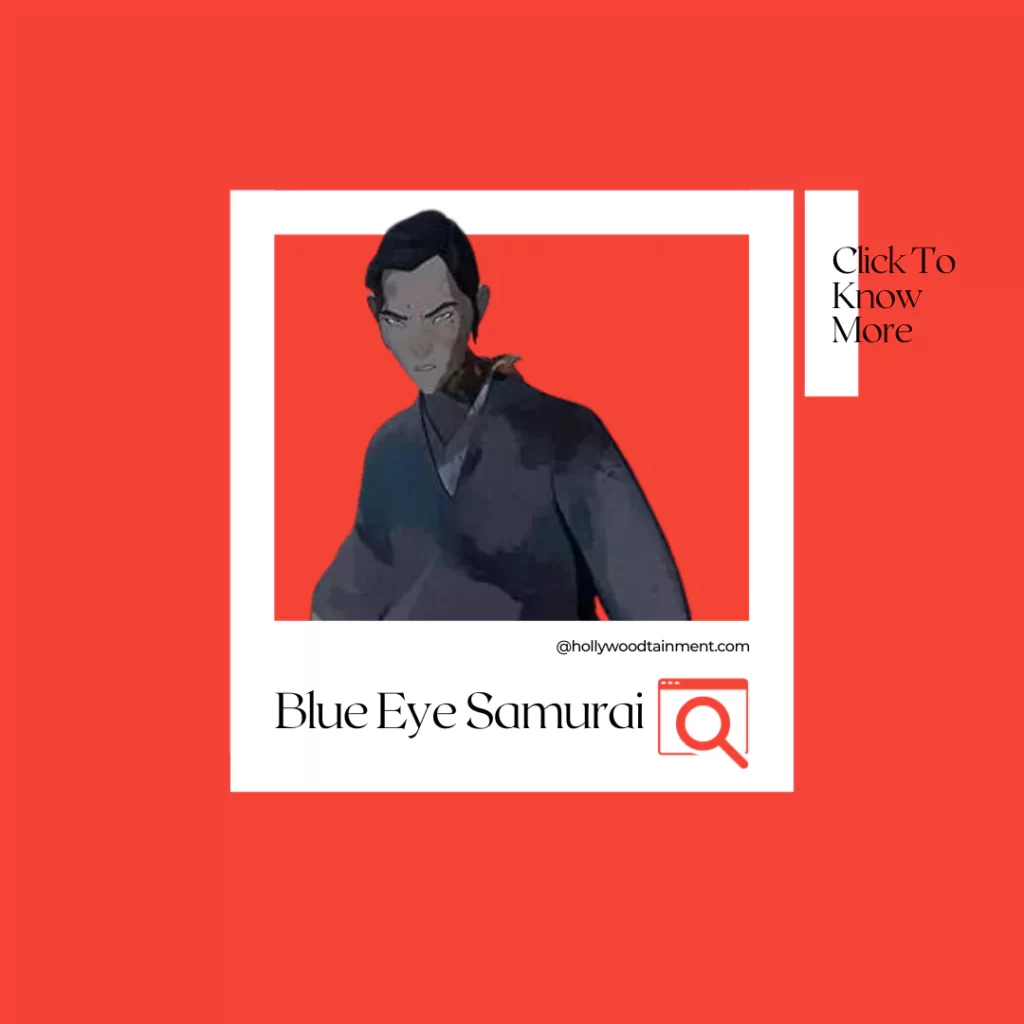Blue Eye Samurai stands out in anime’s world of captivating stories and diverse characters as an absorbing tale of revenge and redemption. Set in 17th-century Edo-period Japan, this series follows Mizu, an exceptional warrior with striking blue eyes who navigates societal prejudice while seeking her vengeance relentlessly.
Release Date: November 3, 2023
Director: Jane Wu
Cast:
- Maya Erskine as Mizu
- Masi Oka as Ringo
- Darren Barnet as Taigen
- Brenda Song as Princess Akemi
- George Takei as Seki
- Cary-Hiroyuki Tagawa as Lord Akimoto
- Randall Park as Lord Mori
Characters:
- Mizu: A female mixed-race blue-eyed samurai with a thirst for vengeance.
- Ringo: A sheltered, disabled cook who idolizes Mizu.
- Taigen: A promising but arrogant swordsman of humble origins.
- Princess Akemi: The pampered but strong-willed daughter of a nouveau riche lord.
- Seki: Princess Akemi’s tutor.
- Lord Akimoto: A ruthless and powerful daimyo.
- Lord Mori: A noble and compassionate daimyo.

Mizu: An Outspoken Warrior with a Hidden Past
Blue Eye Samurai follows Mizu, a young woman whose distinctive appearance and mixed heritage make her an outcast in Edo-period Japan. Mizu’s striking blue eyes, a symbol of foreign origin, stand out from society and have made her both curious and despised by Japanese and Edo inhabitants alike.
Mizu is undaunted by these challenges and boasts an unbreakable spirit and extraordinary swordsmanship skills honed through years of rigorous training that make her a formidable adversary able to face even veteran warriors with equal ease.
Betrayal Fueled the Quest for Vengeance
Mizu’s life takes an unfortunate turn when she witnesses the violent slaughter of her family and its aftermath, shattering her world in an instant. Consumed with grief and an intense need for revenge, she embarks on a hazardous quest to seek vengeance for those she lost.
Her journey takes her through rugged terrain and confronts formidable foes, all the while with an undying resolve to uncover the truth about the deaths in her family. Along the way, she discovers an intricate web of deceit and betrayal, which finds dark secrets from her past that had long haunted her life.
The Path to Redemption: Exploring Identity and Purpose
As Mizu becomes more immersed in her quest for revenge, she faces the challenges of her identity and place in a society that views her as an outsider. Her blue eyes–once seen as signs of rejection–become an emblem of strength and resolve.
Through interactions with various individuals, Mizu appreciates her diverse heritage, realizing it’s not a source of weakness but strength. She learns to channel her anger and grief into seeking justice not just for herself but for all those wronged by those in power.
Visual Symphony of Edo-period Japan
Blue Eye Samurai immerses viewers into the vibrant world of Edo-period Japan, taking them through its bustling yet intricate world. Replicating architectural landmarks, cultural traditions, and social dynamics from this period in Japanese history to vivid life is what Blue Eye Samurai does best – taking viewers through all its challenges and complexities!
Animation style perfectly complements historical settings, using an innovative blend of traditional and modern techniques. Characters are rendered expressively and with detail; emotions and movements are conveyed fluidly and gracefully.
An Exploration of Courage, Resilience, and Self-Discovery
Blue Eye Samurai is more than a revenge story; it’s also about courage, resilience, and self-discovery. Mizu’s journey encourages viewers to reject prejudices against certain groups while also accepting themselves and celebrating individual identities. Her relentless determination is an inspiring example of the human spirit’s ability to conquer hardship and find redemption.
Can Mizu Overcome Prejudice and Find Justice for Her Family?
Mizu’s search for justice is both personal and symbolic in its pursuit. She defies Edo-period Japan’s rigid norms by refusing to be defined by her mixed ancestry or status as an outcast; will she overcome deep-seated prejudices that stand in her way on her path towards justice? Mizu’s journey serves as a testament to resilience and equality – making this story truly universal in its scope.







